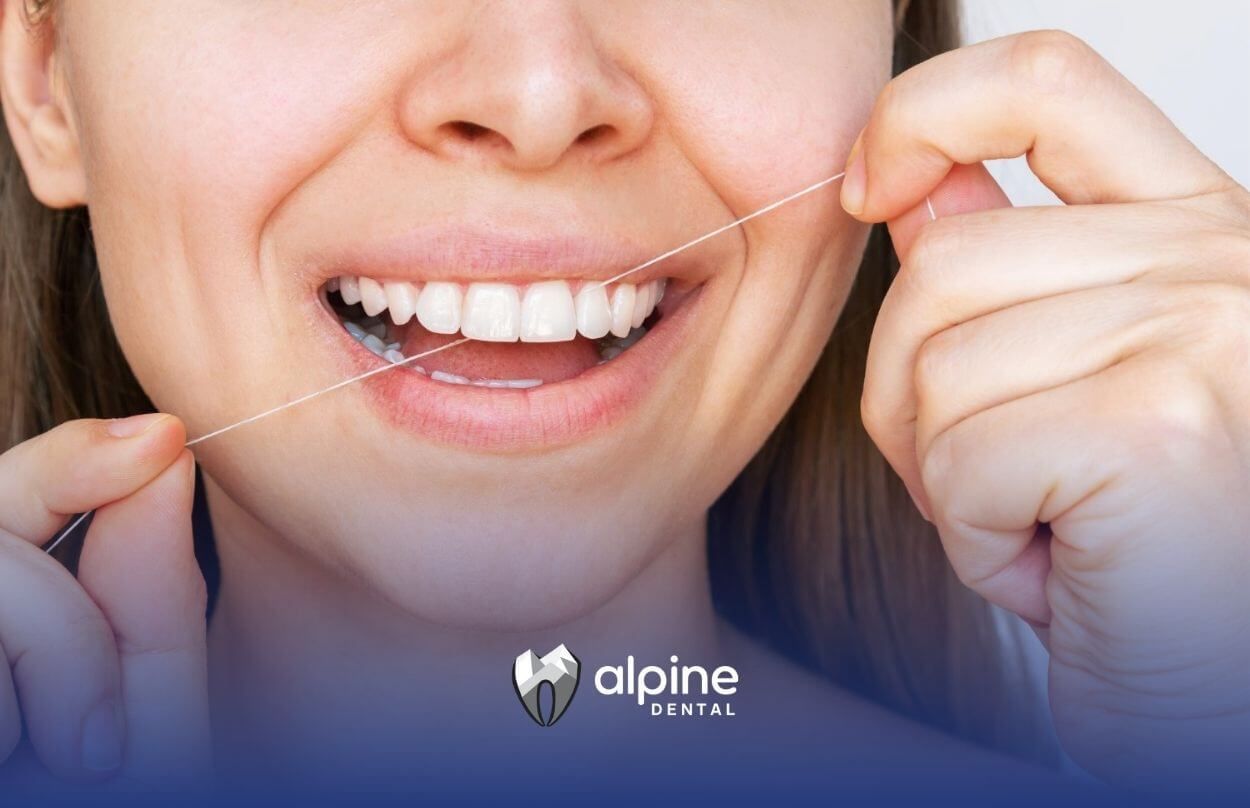Chipped Tooth? Here’s What You Can Do to Fix It and Prevent Future Damage
A chipped tooth can catch you off guard, but it doesn’t have to be a major concern if handled properly. Whether from an accidental bump or biting down on something too hard, this dental issue is common, yet it can quickly affect your smile and confidence.
One of my patients, Ollie, came to me in a panic after she chipped a tooth while eating a caramel candy. She was concerned it would ruin her smile for good, but we were able to fix it in no time using dental bonding, restoring both the function and look of her tooth.
In this guide, we’ll walk through what to do if you ever find yourself in a similar situation, as well as the treatment options available to fix a chipped tooth.
Understanding Chipped Teeth
Tooth enamel is the hardest substance in the human body. Yet, even this strong material can break when subjected to enough force. A chipped tooth occurs when part of the enamel fractures, leaving behind sharp edges or even a gap.
I’ve often had patients tell me they didn’t even realize how fragile their teeth could be until they chipped one during a routine activity like chewing ice or an accidental bump.
If left untreated, the damage can worsen, leading to issues such as infection or decay. It's essential to treat a chipped tooth as soon as possible to prevent further complications. In my experience, people who take immediate action often avoid more severe treatments down the line.
Common Causes of Chipped Teeth
Several factors contribute to chipped teeth, some of which are harder to avoid than others. Here are the main culprits:
- Chewing Hard Objects: Foods like ice, hard candies, or nuts put significant stress on your teeth. As a dentist, I've had countless patients chip their teeth while unknowingly chewing on hard items.
- Accidents or Trauma: Accidents, sports injuries, or falls can cause a tooth to chip. I’ve had several patients come in after a minor fall or contact sport where the impact caused a chip. Wearing a mouthguard can help protect your teeth during high-contact activities.
- Weakened Enamel: If your enamel is already compromised due to decay or grinding, your teeth become more prone to chipping. Regular dental visits can help detect enamel wear early on, potentially saving your teeth from damage.
Signs and Symptoms to Watch For
You might not always notice a chipped tooth immediately, but there are signs to watch out for. A jagged edge on your tooth is often the first indicator.
If you run your tongue across your teeth and feel a rough spot, it could be a chip. In my experience, the sharpness of the chip can irritate the inside of the mouth, causing discomfort.
Some people also experience sensitivity when eating or drinking something hot or cold. If this happens, it’s important to see a dentist soon. A chipped tooth can expose the inner layers of the tooth, increasing your sensitivity and vulnerability to decay.
If the chip is significant, you may also notice swelling or discomfort around the gums. This can be a sign that the sharp edges of the chip are irritating the gum tissue. It's always best to seek professional care if you notice any of these symptoms.
Immediate Steps to Take After Chipping a Tooth
While a chipped tooth might feel alarming, staying calm and taking the right steps immediately can help prevent further damage. Here’s what to do:
- Rinse Your Mouth: Wash your mouth with warm water to clear out any debris and reduce the risk of infection.
- Cover Sharp Edges: If the chip has left any sharp edges, apply dental wax or sugarless gum to prevent irritation to your lips or cheeks.
- Avoid Biting on That Side: This will minimize pressure on the damaged tooth, preventing further damage.
In my experience, these simple steps go a long way in managing the situation until you can see your dentist.
Protecting the Damaged Area
After you’ve taken initial steps to care for the chipped tooth, it’s crucial to protect the damaged area. Here's how you can do that:
- Cover Sharp Edges: As mentioned earlier, use dental wax or sugarless gum to smooth over any jagged edges. This simple act can reduce irritation and prevent cuts inside your mouth.
- Avoid Hard Foods: It might be tempting to continue your usual eating habits, but it's best to avoid chewing on anything hard. This includes nuts, hard candies, and ice. Stick to softer foods until you've seen your dentist.
- Mouthguards: If you grind your teeth at night, a mouthguard can help protect the chipped tooth from further damage. I always recommend my patients who have teeth grinding issues to wear a nightguard as a precaution.
Managing Pain and Sensitivity
Pain or sensitivity in a chipped tooth is common, especially if the enamel is exposed. Here are some ways to manage it:
- Pain Relievers: Over-the-counter pain relievers like ibuprofen can help reduce swelling and discomfort.
- Cold Compress: Applying a cold compress to the outside of your cheek near the chipped tooth can provide relief from pain.
- Avoid Extremes: Steer clear of foods and drinks that are too hot or cold, as they can worsen sensitivity.
While these remedies can help in the short term, seeing a dentist is essential to repair the damage and prevent further complications.
Professional Dental Treatment Options
Depending on the severity of the chip, your dentist may recommend one of the following treatment options:
Dental Bonding
For minor chips, dental bonding is an excellent option. The dentist uses a tooth-colored resin to fill the chip, which not only restores the tooth’s shape but also blends seamlessly with the rest of your teeth.
It’s a quick, pain-free solution that can often be completed in just one visit. In my practice, I’ve seen patients leave the office with their smile fully restored in under an hour.
Dental Bonding Benefits
- Material: Composite resin matched to your tooth color.
- Time: Completed in one visit.
- Longevity: Lasts several years with proper care.
Veneers and Crowns for Larger Chips
For more significant chips, veneers or crowns may be necessary to restore the tooth's appearance and function.
- Veneers: These thin shells, usually made from porcelain, cover the front of the tooth and improve both its look and strength.
- Crowns: If the chip is severe or affects a molar, a crown may be needed to cover the entire tooth. Crowns are available in various materials, including porcelain, resin, and gold. They not only restore the function of the tooth but also enhance its appearance.
Both options are durable and can last for many years with proper care.
Preventing Future Tooth Damage
Taking preventive steps can significantly reduce the risk of chipping your teeth in the future. Here’s what you can do:
- Use a Mouthguard: If you play contact sports or grind your teeth at night, wearing a mouthguard can protect your teeth from unnecessary trauma.
- Avoid Hard Foods: Limit your consumption of foods that can put excessive pressure on your teeth, like ice, hard candy, or nuts.
- Regular Dental Checkups: Keep up with your routine dental visits. Dentists can catch signs of enamel wear or other potential problems before they lead to chips or breaks.
Conclusion
A chipped tooth doesn’t have to ruin your smile. Whether it’s a minor crack or a more significant break, there are plenty of treatment options available.
Acting fast can help protect your tooth from further damage and preserve your dental health. With preventive measures like mouthguards, good oral hygiene, and regular checkups, you can minimize the risk of chipping a tooth in the future.
At Alpine Dental, we’re dedicated to helping you smile confidently again. If you’ve recently chipped a tooth, don’t wait—schedule an appointment with us today, and let’s get your smile back on track!
Frequently Asked Questions
Can a chipped tooth heal on its own?
No, a chipped tooth cannot grow back on its own. Even if you have minor chips and they do not seem like a big problem, not treating them can lead to further damage in your mouth. Getting help from a dental professional, like bonding or fillings, helps keep the tooth safe and protects your overall oral health. This way, you can stop other issues before they get worse and keep your mouth healthy.
How quickly should I see a dentist for a chipped tooth?
See a dentist within a few days, even if you have minor chips in your teeth. This will help stop any further damage. If you have a lot of pain or swelling, you should get emergency care right away. When you get help early, you lower the risk of problems like infection or more tooth damage.
What happens if I ignore a chipped tooth?
If you ignore a chipped tooth, it can lead to decay and cavities. The broken enamel and dentin make it easy for bacteria to get in. This can cause infections that may end up giving you severe pain. Sometimes, the tooth can get damaged for good. It is important to get treatment soon for a chipped tooth to stop these problems before they get worse.
Sources:
- https://my.clevelandclinic.org/health/diseases/chipped-tooth
- https://www.healthline.com/health/chipped-tooth
- https://www.nhs.uk/conditions/chipped-broken-or-cracked-tooth/
- https://www.webmd.com/oral-health/guide/repairing-a-chipped-or-broken-tooth
- https://www.colgate.com/en-us/oral-health/dental-emergencies-and-sports-safety/fixing-a-chipped-tooth-fast




